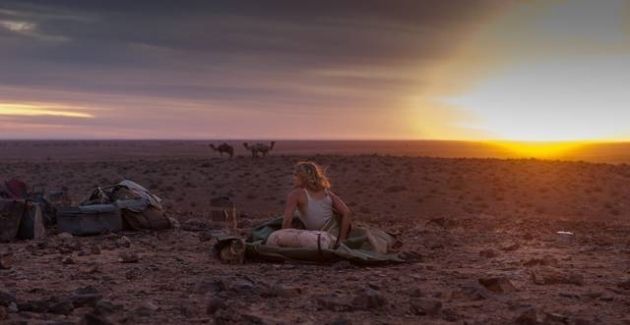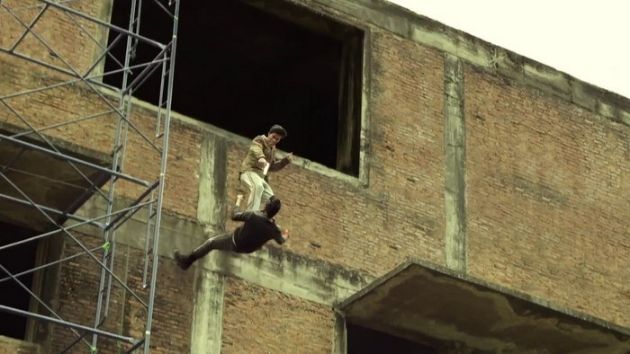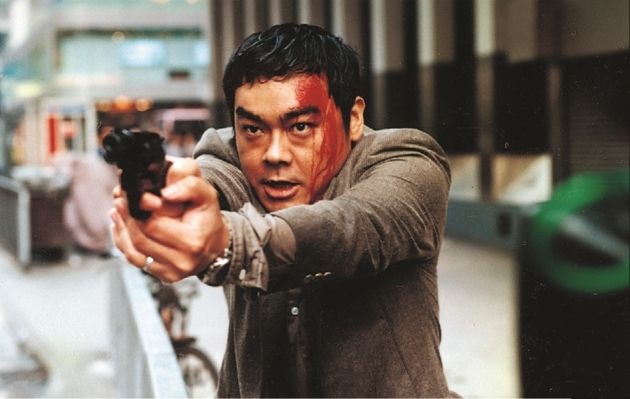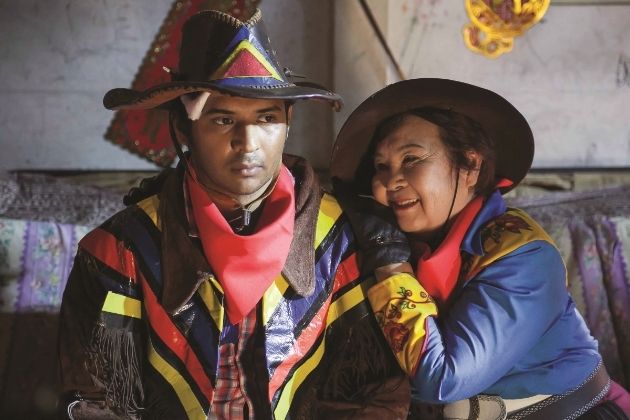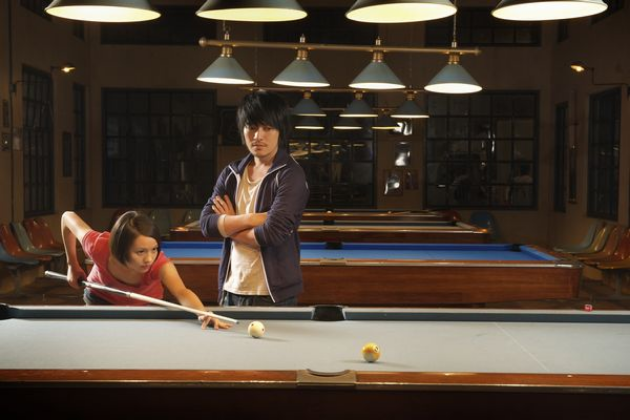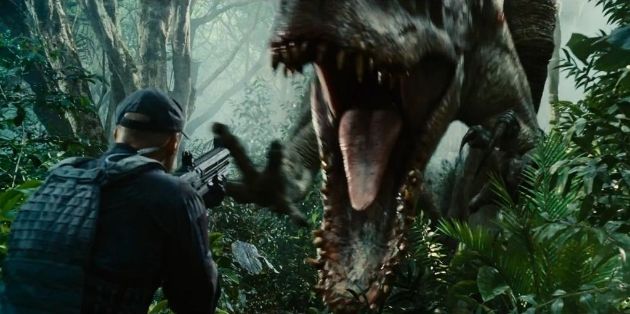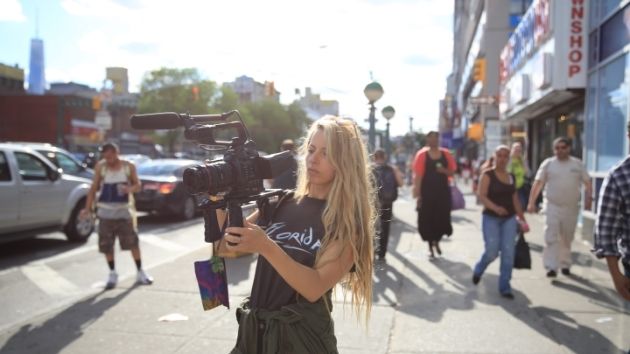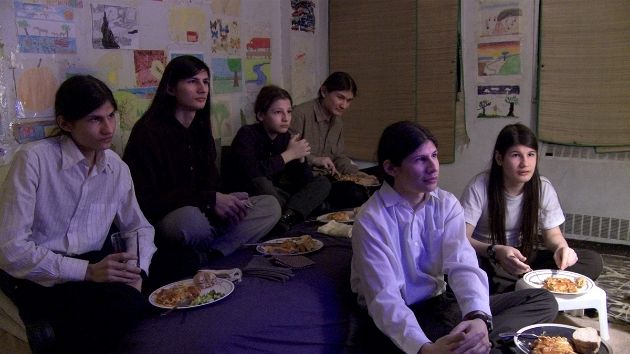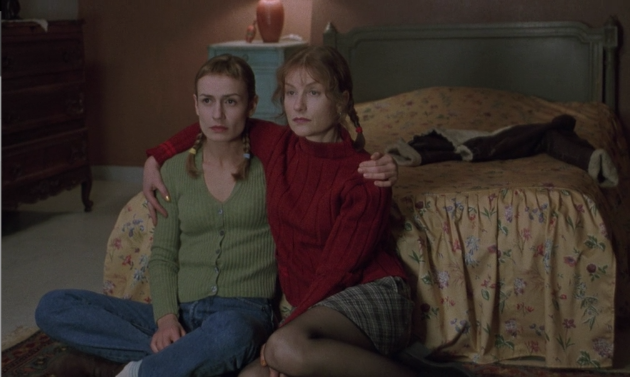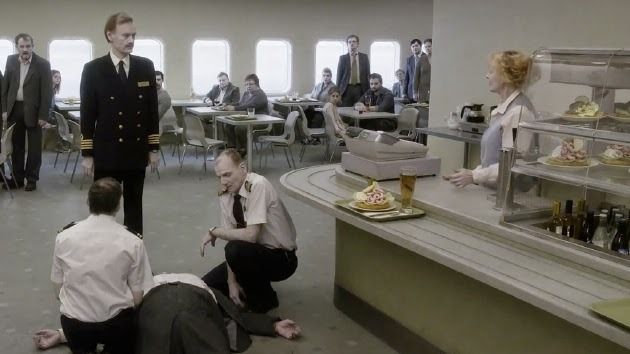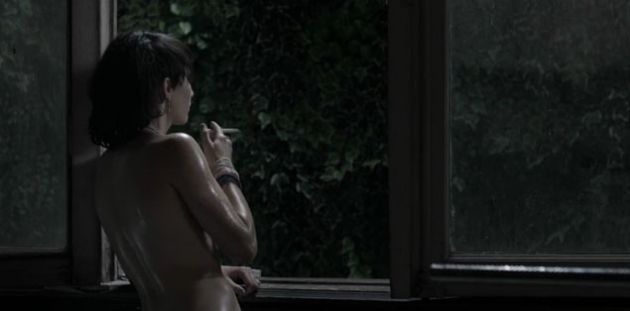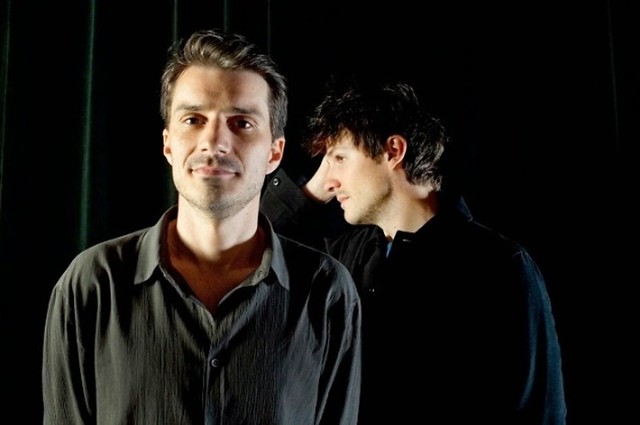
French filmmaker Mia Hansen-Løve's new film
Eden, an ambitious survey of the hedonistic 90s French club music scene, as well as poignant observation on life and time passing, was one of my favorite films I saw last year. To promote its theatrical release in the US, the film's star Félix de Givry and co-writer/DJ Sven Hansen-Løve (and brother of Mia) were in town. I was very eager to talk about the film and the 90s with the two.
I love when things get nerdy in interviews. Obviously de Givry and Hansen-Løve knew what they were talking about but you can tell they are very passionate about what they do. This is one interview I'll remember fondly in the years to come.
I talked with Mia (Hansen-Løve) when she was here for her last film, GOODBYE FIRST LOVE. And she mentioned about EDEN back then, in 2012. How did this project come about?
Sven Hansen-Løve (from herein, SHL): It was really her idea first. She did three films and was at a crossroad in her career and she wanted to do something different. Her first three movies are sort of trilogy- sharing rather similar themes, you could say.
Right, right.
SHL: She was very interested in trying to do something with music. A film where the music is very important, almost like a character. So from one idea to another, she came to the idea of making a film about our generation, set in the 90s especially. It was different then.
The diversity of electronic music always fascinated her and that's how it all started. And since I was a part of that scene she asked me if I wanted to collaborate with her and give her some insights and anecdotes into the era. So it started just like that. And after a while she also wanted me to write. So I started writing.
Félix, you are basically playing 15-20 years of Sven's life. It's a big responsibility. What did you guys talk about prior and during the filming?
Félix de Givry (from herein FdG): I mostly talked with Mia because we always imagined the character as a fictional one, never as a precise portrayal of Sven's life or anything. Everything is sort of blurry- blurring the boundary between fiction and reality is what Mia likes. I think she feels assured in that space in between in a way. We had a long time before we started filming. Strangely, we did a lot of readings but also talked about a lot of different things - characters from other films, books....
With Sven, we mostly talked about stuff surrounding the film, you know, like, souvenirs, mementos from that era. I talked with his friends, studied all those pictures and footage. He gave me the comic book that is in the film- it was like digging into the background of the background. We never really talked about the character and it's funny because, those personal stuff we talked about after the movie was made, as if we could trust each other. Most recently we talked about relationships and stuff like that, right Sven?
(Sven nods.)
So you are talking about friendship beyond the film.
FdG: Yeah.
I asked Olivier (Assayas, Hansen-Løve's husband) about sharing actors with Mia. Coming off of his APRES MAI (SOMETHING IN THE AIR), how did it come about that Mia chose you for the lead role?
FdG: So the whole story was that one of my friends was stopped in the streets for a street casting and she called me because I too wanted to become an actor. She said, "Oh there is this guy Olivier Assayas. He did
Carlos and whathaveyou." So he did a casting on my friend and I met Antoinette Boulat, the casting director. So I went through many steps to get the lead role (Gilles) until Olivier offered me another role that I refused.
You did?
FdG: Yeah I told him that I felt closed to the leading role, because he hesitated between me and the other actor. In his mind Clément was younger and more right for the role-
That's what Olivier said. That you were great, but he was looking for someone younger for the role of Gilles. (the role eventually went to Clément Metayer.)
FdG: I think at the end he was the right choice for the film. So I had a very small part in
Something in the Air.
And then I left because my school and I lived in LA for one year. And Antoinette kept sending me emails about Mia's film. But I was still in LA so I politely declined. But after I got back to Paris in June, as soon as I landed at the airport, we did a casting session. By then Mia had seen my audition tapes for Olivier. I think she had that movie with me in her head for a long time.
Sven, I think you and I are from the same generation. I wasn't a raver but more into grunge in the 90s, just because I was in Seattle at the time. But can you tell what French Touch is, for people who don't know it?
SHL: French Touch is a subgenre of house music. House music was born at the end of the 80s in the States. So it's an American music. But it's always interesting because it goes back and forth between Europe and the States. House was born because black musicians discovered electronic music from Kraftwerk and even some older stuff than that, like early French electronic music which was not a dance music. They then had an idea of mixing this with their own music- soul, disco. The idea was to use computer generated music but bring it down to classic black music- soul, jazz, gospel... everything.
And then it went back to Europe. It had to do with many DJs traveling also. So in France there were these talented young guys, like Daft Punk and others, who really like house music but wanted something different. And it was also the dawn of sampling. The hip hop guys had sampler machine but others wanted to use it not only in hip hop but for music you can dance to in clubs. So these young French people used the sampler on disco - it had a very simple beat and the sample goes in and out - it's easier get in and to dance to. It's more mainstream version of house music. Daft Punk built upon this into their own success. I think they are the pioneers of the French Touch.
But then some other artist arrived and made it a little different - Dmitri from Paris and so on. The idea was always making their own version of house.
Would Air fit in this category?
SHL: Yeah. Of course their music is a bit different. They arrived to the scene a little later. And there is Phoenix, also from the same time and affiliated with the genre even though they play rock music. I know it's getting kind of complicated.
FdG: But they are all French.
SHL: Right. First of all they are French. And even though they are not house, but electronic also-
FdG: And synth.
SHL: And they use synthesizer. It's computer generated in a way.
FdG: And they are homemade as well. They are done in their bedrooms.
SHL: That's right. Home studios.
I think Sven and I are about the same age, You are much younger. How do you know about Garage & 90s music?
FdG: I have my own music label. I am interested in all the stuff we just talked about. The people in my generation listened to Air, Phoenix, Daft Punk and there are others too - Justice and the whole Ed Banger (record label) groups. It's not mainstream culture but it's not underground either. But they are not snobs. They enjoy their moderate success and fame.
I think there are two sides on where my passion lies: I discovered doing the film that there are underground roots in garage and the other is my passion for electronic music that I grew up listening to. Nowadays, you just choose what kind of electronic music you want to listen to, you know. Even the pop music uses that computer sampled, compressed sound.
What was the hardest part of being in this film as an actor?
FdG: When I read the script, couple of things stood out for me- one is in one of the first scenes. It's after the party in the submarine and my character Paul is in the woods and was told to listen to the silence. There's bird chirping, noise then silence. And the time passes and at the end when Paul breaks down on the floor and asking for silence. And for me that was the key to key moment for the film, for this character. Because it's a character who lives in constant noise. And noise kind of polluted his vision. He got lost in a big washing machine you know- his clubbing, nightlife and drugs... So the idea of silence was extremely interesting for me. Because the character I think he makes it at the end as a writer. In writing, it's so much about silence.
So that scene when Paul has sort of a breakdown and was laying on the floor: it was also one shot- there was no movement in this apartment where we had been for four days, shot many different scenes - that was a tough scene.They proposed to me to use eyedrops so I can pretend to cry, I really didn't want to do that. It's so Hollywood fabrication thing to do.
I noticed that. Because in Hollywood movies what you usually see is a single tear rolling down on a hero's face. Very stoic. Couple of scenes I remember where you cry, you cover your face. And that's what people do in real life.
FdG: Right. People are not like, aaaahh (throwing hands in the air). Emotions are overplayed sometimes.
I thought it was much more real how you did it.
FdG: I really cried.
Aw.
FdG: Anyway I realized that I need to change my way of crying. It's really not possible to show exactly how I cry. (laughs.)
Mia told me that the film was going to be in two parts. And obviously the film is in two parts but not two separate movies. Can you tell me how it didn't happen that way?
SHL: Well she had this crazy ambition to do two films. The reason also was she had a lot of materials. When the first draft was done, it was very very long because she wanted to keep everything. But nobody would produce two films on a topic like that. If it was an action movie then no problem but some intimate movie about DJs, it would've been very difficult to finance.
We also tried to pitch it as a TV series and gave the script to TV channels but they didn't want to do it. So at some point we realized that it won't be two films. It was just too ambitious. So we cut the script a lot.
It is still very ambitious though I mean it's a huge movie. I'm amazed she pulled it off.
What I love about Mia's films is the passage of time portrayed before your eyes. How difficult was it portraying older man?
FdG: Obviously it was tough. Sometimes we were shooting Paul in different ages the same day. But I think there is also a subtext about the character not growing up. That there is something about Paul being steady in his unsteadiness. When he is in his twenties I feel close to that so it's not really difficult to portray him. When he is in his late 30s, 40s, it's also easy because I know Sven, even though it's not him I'm portraying, I can feel who he is. It's inbetween ages that's harder - late 20s and 30s. But in the end, in terms of Sven's life that's when he was most lost, not really knowing where he is at, wasn't a problem, I think.
You think it's a 90s generation thing that you do what you love to do or you become a slacker?
SHL: What is a slacker?
A person who doesn't work for the Man and just floats around.
SHL: I don't think it's a 90s thing. The difference is that back then, we were not as anxious about our future than young people right now. The time was a little more positive and optimistic. Even though I was living day to day, I wasn't worried about the future too much. I thought everything would work itself out at the end. Maybe I didn't ask questions that I need to ask much earlier.
Do you think that your generation is a lot more anxious?
FdG: Yeah. It's not really about expectations but more about anxiety which is hard to explain. Even in partying, dancing to techno or house, there was the feeling of opening to the world back then. Now they party to protect themselves. And the drugs we have nowadays compared to the ones back then, is something to do at a moment when you want to protect yourself.
It's more of an escape than pleasure.
FdG: Yeah exactly. For me it's not very healthy the way people are partying nowadays. I know a lot of my friends are partying like 70 hours in a row, never stopping. I'm pretty sure that happened in the 90s too but it was not the same relationship at all.
It was more fun in the 90s?
FdG: Yeah, I think it was more real, hedonistic.
Robert Creeley's The Rhythm- the cyclical nature of life just fits perfectly for the ending. Was it your idea to put that in the film?
SHL: No. But I take the credit for introducing Robert Creeley to my sister. I think she was reading the anthology of his poems when we were writing the script. I think she found that particular poem
The Rhythm really matched with the theme of the film.
How about a short animated phoenix in the beginning?
FdG: Well Paul is on drugs. Sometimes you see swirls in the corner of your eyes in the morning after you are out all night. Mia was really keen on having that in the beginning and not have any following explanations.
SHL: Also I think Paul was having this dreamy life back then- clubbing and doing drugs. It was a small indication of his dreamy state.
I thought it was more to do with Phoenix rising. That at the end he becomes a writer, that in a way he is reborn as another artistic person.
FdG/SHL: Yeah that too.
Eden opens across the U.S. on Friday, June 19 by Broad Green Pictures. Please checkout dates for your city at Broad Green Pictures website.
0
comments


